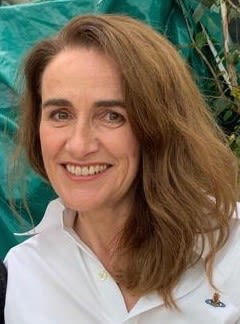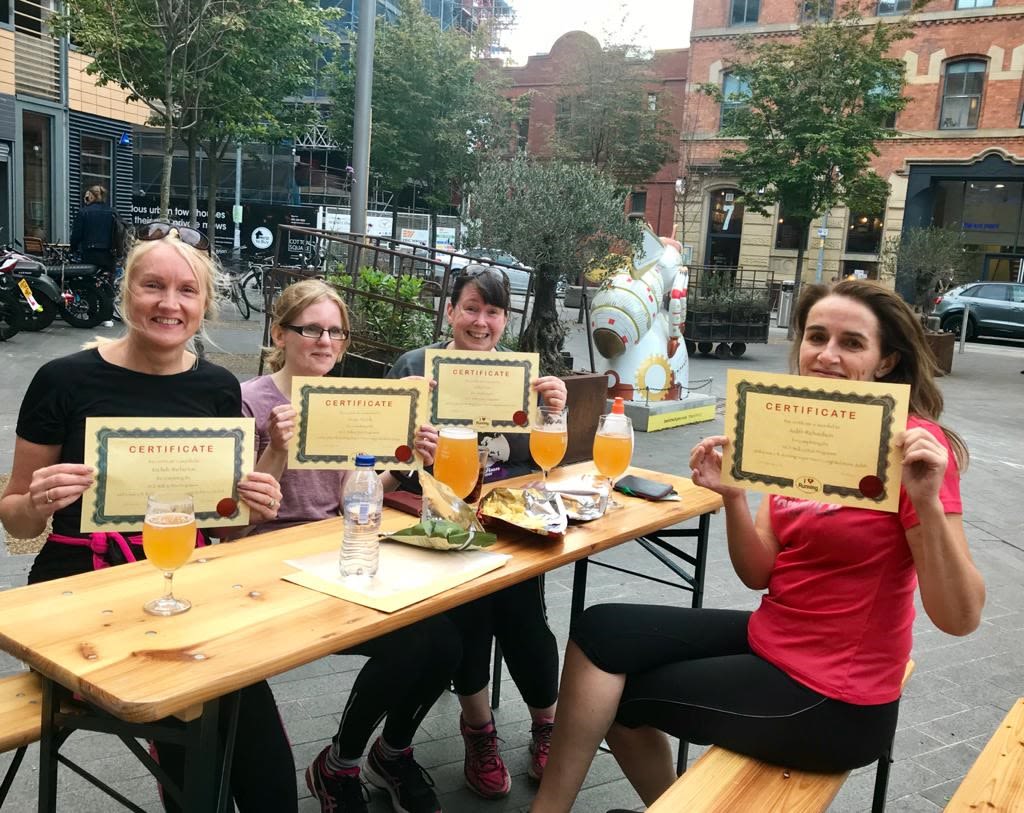Judith Richardson
Health and Social Care Directorate
"The strategy creates a real opportunity for us to look afresh at our implementation role."

What does your role involve? Help staff to understand a bit more about what you do day-to-day.

Judith Richardson, director for the Health and Social Care Directorate
Aside from attending meetings to discuss strategy (executive team), sign off guidance (guidance executive) and sign off those outputs that support implementation (publication executive), I manage a rather large team of nearly 90 people, all working to make sure that our guidance is used. Much of my time is also spent meeting with those in organisations at a national level who use our guidance. Or could use more of our guidance to support their work.
This ranges from other arm's-length bodies (ALBs), for example the Care Quality Commission (CQC), to social care organisations where we need to work in partnership to encourage the development and use of evidence informed care.
There is no such thing as a typical day for me. Themes of work and meetings may range widely. From health inequalities, patient safety, how we collaborate and work more in partnership with others, to supervising public health registrars who are on placement at NICE. I love the breadth and diversity of my role!
What does your directorate do? Give us an elevator pitch.
We support the implementation of our guidance across health and care. We bring intelligence back into the organisation, on how usable and useful our guidance is and ensure public involvement in all NICE's work.
What makes you proud to lead your directorate?
The people I work with, how good they are at what they do and how flexible and supportive everyone has been with one another over the last year. It has been a time of immense change with lots of uncertainty, many of us in acting roles. People with children at home as well as other caring responsibilities. And yet everyone has done their bit to support keeping the show on the road. As well as offering their time and support to other teams who faced exceptional pressures with the onset of the pandemic.

Judith Richardson, director for the Health and Social Care Directorate
Judith Richardson, director for the Health and Social Care Directorate
Why do you think it’s important that NICE has a new strategy right now?
A lot has changed in health and care since we were established over 20 years ago, and that degree of change has only increased with COVID-19. With a new chairman and chief executive, it's time to take stock of the context in which we work. To consider what changes we need to make as an organisation to ensure that all our work remains relevant. And that our work is as well used as it should be, to improve outcomes for all those using health and care services.
How will the strategy improve the way your directorate works?
The strategy creates a real opportunity for us to look afresh at our implementation role. To think about where we need to focus, and then what that means for everyone here, as well as for the Health and Social Care Directorate.
We already work together with the guidance teams to make sure that our guidance is as useful as it can be, easy to access and that use is considered throughout guidance development. But there is more we can all do. Implementation needs to be everyone at NICE's business if we are to maximise our impact on health and wellbeing, as well as addressing health inequalities.


Judith helped to set up a running group aimed at those new to running. Here, the group are celebrating with after work drinks, having just completed a 5k run
Judith helped to set up a running group aimed at those new to running. Here, the group are celebrating with after work drinks, having just completed a 5k run
Looking at the strategy content, what will be the top 3 priorities that your directorate will support with?

Judith helped to set up a running group aimed at those new to running. Here, the group are celebrating with after work drinks, having just completed a 5k run
- Integrated care systems (ICSs) and NICE's offer. We are one of very few organisations that span both health and care. We have a great opportunity to set out what we can offer in the evolving landscape of ICSs. This won’t be easy with 42 organisations with differing priorities and stages of development. But we have the expertise and experience of the field team to draw on to make sure we get this right.
- Health inequalities. The differences in health outcomes across different groups in society have always been there. But they have been exacerbated by COVID-19 in a way that is very stark. We're leading the work to review our approach to health inequalities and how we interpret our role – from strategy through methods to implementation.
- Partnerships and collaboration. The whole is more than the sum of the parts, to misquote Aristotle. If we are to make the biggest difference to health and care outcomes, it's vital we work with other organisations. One of the positives of COVID-19 has been organisations being more collaborative.
How will you measure the success of the strategy within your directorate?
This is always a difficult one for us. Especially as the outcome we're aiming for is to measure the impact of our guidance in improving outcomes across health and care. Very often, as most of our work is done in partnership with other organisations, our outputs are less tangible and not within our direct control.
Also, we look to embed our guidance within the work of others in a way that is supportive and not prescriptive – 'guidelines not tramlines'. Therefore, one of the ways in which we will measure our success is the extent to which NICE is embedded in the frameworks of other organisations, for example, the CQC.
But, we're also collaborating with the Science, Evidence and Analytics Directorate to test how we can be much slicker in our use of data in impact reports. An exciting development! And, of course, we work closely with the audience insight team.
Enjoy this article?
Get in touch and let us know.